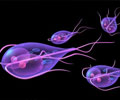
The authors discovered that the extinct human microbes from natural mummies closely resembled compost samples, while one sample from Mexico was found to match that from a rural African child. Overall, the extinct microbial communities were more similar to those from present rural populations than those from cosmopolitan ones. The study concludes, "These results suggest that the modern cosmopolitan lifestyle resulted in a dramatic change to the human gut microbiome."
As Lewis explains, "It is becoming accepted that modern aseptic and antibiotic practices, are often beneficial but come with a price, such as compromising the natural development of our immune system through changing the relationship we had with microbes ancestrally. What is unclear is what that ancestral state looked like. This paper demonstrates that we can use ancient human biological samples to learn about these ancestral relationships, despite the challenges of subsequent events like degradation and contamination."
Source-Eurekalert










